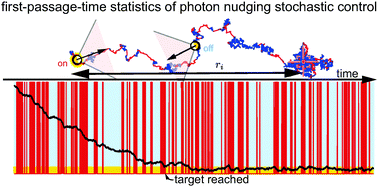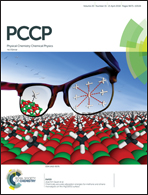Theory for controlling individual self-propelled micro-swimmers by photon nudging I: directed transport
Abstract
Photon nudging is a new experimental method which enables the force-free manipulation and localization of individual self-propelled artificial micro-swimmers in fluidic environments. It uses a weak laser to stochastically and adaptively turn on and off the swimmer's propulsion when the swimmer, through rotational diffusion, points towards or away from its target, respectively. This contribution presents a theoretical framework for the statistics of both 2D and 3D controls. The main results are: the on- and off-time distributions for the controlling laser, the arrival time statistics for the swimmer to reach a remote target, and how the experimentally accessible control parameters influence the control, e.g., the optimal acceptance angle for directed transport. The results are general in that they are independent of the propulsion or the actuation mechanisms. They provide a concrete physical picture for how a single artificial micro-swimmer could be navigated under thermal fluctuations—insights that could also be useful for understanding biological micro-swimmers.



 Please wait while we load your content...
Please wait while we load your content...